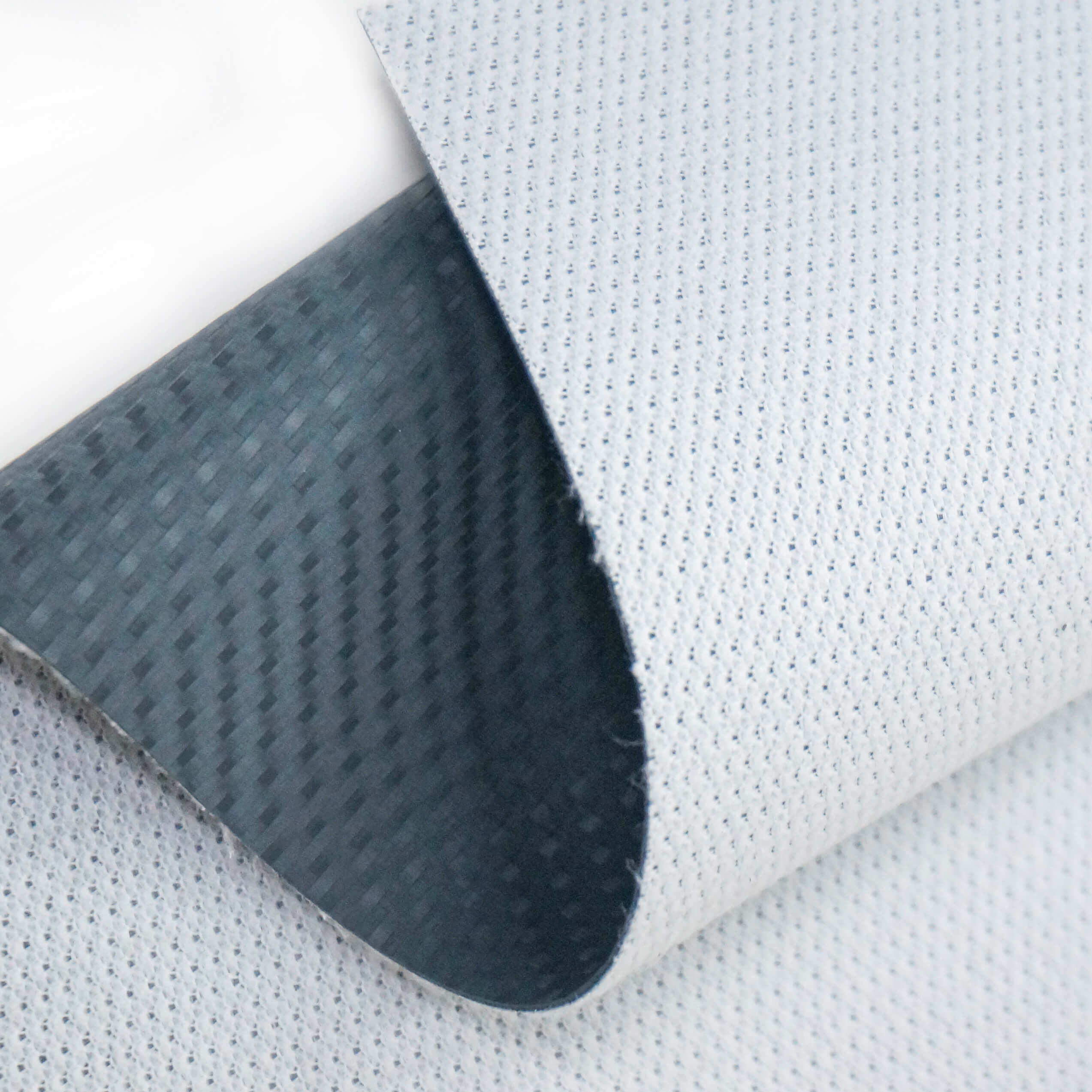Email format error
Email cannot be empty
Email already exists
6-20 characters(letters plus numbers only)
The password is inconsistent
Email format error
Email cannot be empty
Email does not exist
6-20 characters(letters plus numbers only)
The password is inconsistent

News

Exploring the World of PVC Artificial Leather
PVC artificial leather has become a staple in various industries due to its versatility, durability, and cost-effectiveness. This material, often referred to as faux leather, is widely used in fashion, automotive, upholstery, and many other fields. In this comprehensive guide, we will delve into the intricacies of PVC artificial leather, exploring its production, benefits, applications, and how it compares to genuine leather.
What is PVC Artificial Leather?
PVC artificial leather, also known as polyvinyl chloride leather, is a synthetic leather made by coating a fabric base with PVC. This process creates a material that mimics the look and feel of genuine leather but at a fraction of the cost. PVC artificial leather is known for its durability, ease of maintenance, and wide range of colors and textures.
The Production Process
The production of PVC artificial leather involves several steps:
Base Fabric Preparation: The first step is preparing the base fabric, usually made from polyester or cotton. This fabric provides the structural integrity of the final product.
PVC Coating: The fabric is then coated with a layer of PVC. This can be done through various methods such as calendaring or direct coating. The PVC layer can be textured or embossed to resemble real leather.
Finishing: Finally, the PVC-coated fabric undergoes a finishing process where additional treatments are applied to enhance its appearance, durability, and performance. This can include adding a topcoat for UV resistance or printing patterns.
Benefits of PVC Artificial Leather
PVC artificial leather offers numerous advantages over genuine leather and other synthetic materials. Here are some key benefits:
Cost-Effectiveness
One of the most significant advantages is its affordability. Genuine leather is expensive due to the cost of animal hides and the labor-intensive tanning process. In contrast, PVC artificial leather is much cheaper to produce, making it an attractive option for budget-conscious consumers.
Durability and Maintenance
The leather is highly durable and resistant to wear and tear. It can withstand harsh conditions without cracking or fading, making it ideal for applications where durability is essential. Additionally, it is easy to clean and maintain, requiring only a simple wipe with a damp cloth to remove dirt and stains.
Versatility
PVC artificial leather is available in a wide range of colors, textures, and finishes, allowing for endless design possibilities. Whether you need a sleek, glossy finish for a modern look or a textured, matte finish for a more traditional appearance, the leather can be customized to meet your specific needs.
Applications of PVC Artificial Leather
The versatility makes it suitable for a wide variety of applications across different industries. Here are some common uses:
Fashion Industry
In the fashion industry, the leather is used to create stylish and affordable clothing, footwear, and accessories. From jackets and skirts to shoes and handbags, designers utilize PVC leather materials to achieve the look of genuine leather without the high cost.
Automotive Upholstery
The leather is a popular choice for automotive upholstery due to its durability and ease of maintenance. Car seats, dashboards, and door panels often feature PVC artificial leather, providing a luxurious look and feel while being resistant to wear and tear.
Furniture and Upholstery
Furniture manufacturers use PVC artificial leather to produce sofas, chairs, and other upholstered items. Its resistance to stains and easy maintenance make it an ideal material for both residential and commercial furniture.
Marine and Outdoor Applications
The leather is also used in marine and outdoor applications due to its resistance to water and UV rays. Boat seats, outdoor furniture, and awnings can all be made from this versatile material, ensuring longevity and durability in harsh environments.
Comparing PVC Artificial Leather to Genuine Leather
When deciding between PVC artificial leather and genuine leather, several factors come into play. Here’s a comparison to help you make an informed decision:
Cost
As mentioned earlier, the artificial leather is significantly more affordable than genuine leather. This cost difference makes the artificial leather an attractive option for those looking to achieve a leather-like look and feel without breaking the bank.
Durability
While both artificial leather and genuine leather are durable, the artificial leather is generally more resistant to water, stains, and UV rays. This makes it a better choice for applications where exposure to harsh conditions is expected.
Maintenance
PVC artificial leather is easier to maintain than genuine leather. It does not require conditioning or special cleaning products and can be easily wiped clean with a damp cloth. Genuine leather, on the other hand, requires regular maintenance to prevent drying, cracking, and staining.
Environmental Impact
The environmental impact is a topic of debate. On one hand, it is made from synthetic materials, which can have a negative environmental impact due to the production process and disposal issues. On the other hand, it eliminates the need for animal hides, reducing the demand for livestock farming, which has its own environmental concerns.
Innovations in PVC Artificial Leather
The development continues to evolve, with new innovations improving its performance and sustainability. Here are some recent advancements:
Eco-Friendly Alternatives
Researchers and manufacturers are working on eco-friendly alternatives to traditional PVC artificial leather. These include using bio-based plastics and incorporating recycled materials into the production process, reducing the environmental footprint of synthetic leather.
Enhanced Performance
Innovations have led to improved performance characteristics, such as increased breathability, enhanced flexibility, and better resistance to extreme temperatures. These advancements make PVC artificial leather suitable for a wider range of applications and environments.
Customization and Aesthetics
Advancements in printing and finishing techniques have allowed for greater customization. This includes the ability to create intricate patterns, vibrant colors, and realistic textures that closely mimic genuine leather.
Choosing the Right PVC Artificial Leather Material
When selecting PVC artificial leather for your project, consider the following factors:
Application
Consider the intended use of the material. For example, automotive upholstery requires a material that is durable, easy to clean, and resistant to UV rays. On the other hand, fashion items may prioritize appearance and texture.
Quality
The quality can vary significantly. Look for materials that have undergone rigorous testing for durability, colorfastness, and resistance to wear and tear. High-quality PVC artificial leather will provide better performance and longevity.
Sustainability
If environmental impact is a concern, seek out eco-friendly options. Look for manufacturers that use sustainable practices, such as incorporating recycled materials or using bio-based plastics.
Budget
While PVC artificial leather is generally more affordable than genuine leather, prices can still vary. Determine your budget and find a material that offers the best balance of cost and quality for your specific needs.
Conclusion
PVC artificial leather is a versatile and cost-effective alternative to genuine leather, offering numerous benefits across various industries. Its durability, ease of maintenance, and wide range of design options make it a popular choice for fashion, automotive, furniture, and outdoor applications. As innovations continue to improve its performance and sustainability, the artificial leather will likely remain a staple material for years to come.
Whether you're a designer, manufacturer, or consumer, understanding the properties and applications can help you make informed decisions and leverage the advantages of this remarkable material.

